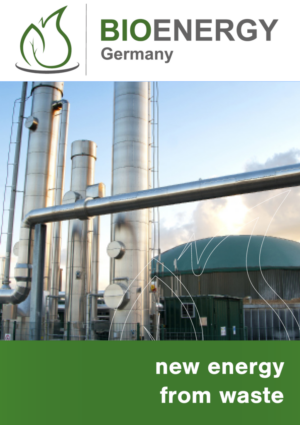MSW-OF for BIOGAS
MSW-OF for BIOGAS paper The today standard about Biogas
Utilization of Municipal Solid Waste Organic Fraction (MSW-OF) for Biogas Production
Municipal Solid Waste Organic Fraction (MSW-OF) represents a significant portion of the waste generated in urban areas. Its management poses a substantial challenge for municipalities worldwide. However, MSW-OF also presents an opportunity as a renewable resource for biogas production. Biogas technology offers a sustainable way to manage organic waste while producing valuable energy and reducing greenhouse gas emissions.
This paper explores the potential of MSW-OF as a feedstock for biogas production. It begins by examining the composition and characteristics of MSW-OF, highlighting its suitability as a substrate for anaerobic digestion. The paper then delves into the process of anaerobic digestion, describing how microorganisms break down organic matter in the absence of oxygen to produce biogas, a mixture of methane and carbon dioxide.
The paper reviews current technologies and methodologies for optimizing biogas production from MSW-OF. This includes pre-treatment processes to enhance the digestibility of the waste, the selection of appropriate microbial consortia for efficient conversion, and advanced digester designs that maximize gas yield. The paper also discusses the challenges and solutions related to handling contaminants and impurities in MSW-OF, such as plastics and heavy metals, which can hinder the anaerobic digestion process or reduce the quality of the produced biogas.
Furthermore, the paper examines the environmental and economic impacts of utilizing MSW-OF for biogas production. It assesses the potential reductions in landfill use and greenhouse gas emissions, along with the energy recovery rates. The economic analysis considers the costs associated with collecting, transporting, and processing MSW-OF, as well as the potential revenues from the sale of biogas and other by-products like digestate, which can be used as a soil amendment.
The paper concludes by discussing the policy and regulatory frameworks necessary to support the integration of MSW-OF into biogas production. It highlights the need for policies that encourage the segregation of organic waste at the source, provide incentives for biogas production facilities, and establish standards for the quality and safety of the produced biogas and digestate.
Through comprehensive analysis, this paper demonstrates that MSW-OF can be an important component of sustainable waste management strategies, contributing to energy generation, environmental protection, and economic growth.
Additional Explanations:
T1. he San Francisco Organic Waste Program in the USA is a notable example of MSW-OF utilization for biogas production. This program was designed to address the significant environmental issue posed by food waste in landfills, which emit methane as they decay. To counteract this, San Francisco implemented a mandatory residential food waste recycling program, aiming to convert food waste into compost or biogas. This initiative reflects a broader recognition of the environmental impact of food waste and is part of California’s efforts to cut organic waste in landfills by 75% from 2014 levels by 2025. The program includes segregating food waste into green waste bins and having municipalities convert this waste into compost or biogas, an energy source similar to natural gas.
In South San Francisco, the SSFSC/Blue Line installed the SmartFerm dry fermentation anaerobic digestion and IVC composting system, developed by Eggersmann and supplied by Zero Waste Energy, LLC. The facility includes eight digesters, each with a capacity for 240 cubic yards of material, designed to process a mix of food waste and green waste. The biogas produced is used to fuel part of the fleet of trucks owned by SSFSC, which have been converted to run on compressed natural gas (CNG). This setup illustrates how biogas production can be integrated into existing waste management and transportation systems, providing an example of sustainable urban infrastructure.
These case studies demonstrate the practical application and benefits of utilizing MSW-OF for biogas production. They showcase how such initiatives can contribute to environmental sustainability, waste reduction, and renewable energy production. The success of these programs serves as a model for other cities and countries looking to implement similar waste-to-energy solutions.
2. The Horizon 2020 Project in Europe is an extensive and multifaceted initiative that involves multiple countries and focuses on optimizing the conversion of Municipal Solid Waste Organic Fraction (MSW-OF) into biogas. This project is notable for its emphasis on improving biogas production efficiency, which is accomplished through various innovations in pre-treatment and digestion technologies.
One of the key components of this project is the MICRO4BIOGAS initiative, which aims to boost the biogas sector in Europe. The objective is to increase the yield, speed, quality, and reproducibility of biogas production. To achieve this, the project is developing highly efficient microbial consortia based on strains that naturally inhabit anaerobic digesters, employing strategies like bioaugmentation. The MICRO4BIOGAS project is a part of the Horizon 2020 programme and is coordinated by the Universitat de Valencia in Spain, with several other European organizations participating (CORDIS, European Commission).
Another significant project under the Horizon 2020 umbrella is the ISABEL project, which focuses on fostering the concept of community biogas and its market uptake. This initiative promotes local production-consumption systems of waste-based sustainable biogas and assumes that a local and inclusive (community-based) governance model is appropriate for the sustainable functioning of such systems. The ISABEL project argues that under these conditions, biogas can be viewed as a public good rather than a commodity. It integrates the concepts of social innovation, community energy, and biogas to foster the development of biogas community energy projects (ISABEL Project).
Additionally, the BiogasAction project under Horizon 2020 aims to promote sustainable biogas production in the EU. This project focuses on removing non-technical barriers to widespread production of biogas/biomethane from manure and other waste. It involves various activities, including peer learning workshops, training courses, and events aimed at public administration, plant operators, and the general public to improve the framework conditions for biogas production and raise public acceptance (CORDIS, European Commission).
These initiatives reflect the European Union’s commitment to developing sustainable and innovative approaches to energy production, particularly through the utilization of organic waste for biogas production. By bringing together research, technology, and community involvement, these projects contribute significantly to the advancement of the biogas sector in Europe.


